Healthcare careers are part of the fastest growing industry for job growth and development in the United States. This trend is expected to continue over the next decade and expected to grow at an astonishing rate of 23%. This is largely due to the accessibility of online healthcare administration programs and the aging baby boomer generation. Healthcare careers can be found in hospitals, clinics, long-term care facilities, and even at home.
Top Healthcare Careers
Healthcare careers have reached beyond patient care: they are found in administration, information systems, web developing and more. Whether you’re looking for the best paying healthcare careers, the best nursing careers for moms, or the best careers in healthcare for the future, look through this list to find your needs.
List of the Best Healthcare Careers
Chemist

This career usually leads to a position in pharmaceutical manufacturing, research, and development or testing laboratories. Average annual salaries for a B.S. in chemistry is $74,720 with an average job growth of 3%, which is somewhat slower than the nationwide average. Undergraduate chemistry majors are typically required to take courses in analytical, organic, inorganic, and physical chemistry. Computer science courses are useful as are courses in mathematics, biological sciences, and physics.
Medical Scientist

Medical scientists generally need to have a Ph.D. in biology or a related life science and conduct research designed to identify new medicines and treatments used in treating patients. They analyze medical samples to investigate causes and treatment of chronic diseases, pathogens or toxicity. They also define drug potency and dosages in the manufacturing of medical compounds and pharmaceuticals and some create medical devices. They earn an average of $79,930 annually.
Information Security Analyst

Maintaining secure digital medical records has become paramount since the passing of the Health Insurance Portability and Accountability Act (HIPAA) in 1996. Information Security Analysts are vital to a hospital or health system’s ability to maintain state and federal compliance regarding patient medical records. This career requires at least a Bachelor’s degree in information technology and earn an estimated annual salary of $88,890.
Radiation Therapist
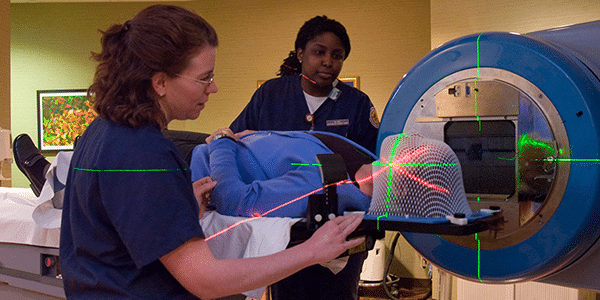
Radiation Therapists earn an average of $80,090 annually and have a projected job growth of around 14% over the next ten years. Possible applicants need to have an associate degree in nuclear medicine technology, with studies in human anatomy and physiology, physics, chemistry, radioactive drugs, and computer science. Radiation Therapists typically work in hospitals and specialized oncology clinics. Most states require clinical experience and licensure from accredited sources.
Biochemist

Biochemists study the chemical and biological processes, such as cell development, cell growth, heredity, and disease. Upon studying the cellular level of human anatomy they provide research and analysis. Typically those employed in this field have a minimum of a master’s or Ph.D. The estimated salary is $84,940 with a job growth of 8% over the next decade.
Biomedical Engineer

Biomedical engineers blend the world of science and engineering into a career that designs medical equipment and devices using electrical circuits, software, and computer simulations. They also train clinicians on the use of the equipment and evaluate the safety and effectiveness of the medical equipment and devices. They earn an average of $86,950 annually.
Health Information Managers

Positions for Health Information Managers include Clinical Data Analysis, Application Analysis, Health Information Management, Information Technology Consultant, Clinical Informatics Manager and Chief Information’s Officer. These positions range in salary from $55,000 to $95,000. If you’re looking for the best careers in healthcare administration, this might be what you’re looking for. Most of these positions require a master’s in healthcare administration.
Healthcare Administrators

With an increase in the growth of health-related services in hospitals, clinics, long-term facilities and physician groups the need for educated and qualified healthcare managers continues to grow. Medical Administrators hold a bachelor’s degree at least. Many earn an MBA with an emphasis in healthcare administration. The average salary for healthcare administrators is $92,810.
Medical Perfusionists

Medical Perfusionists are critical team members of the surgical team for both cardiac and pulmonary surgeries. They operate the heart or lung machines used throughout the duration of the surgery. Perfusionists monitor and correct the patient’s status by administering various blood products to the patient, regulating different medications, and observing and controlling the patient’s temperature during surgery. Students take courses in biology, chemistry, anatomy, and physiology, as well as additional specialized training to satisfy the requirements for certification and licensure. Qualified, licensed perfusionists can earn around $93,500 annually.
Gerontology Nurses

This is one of the fastest growing professions in the country with an expected growth of 31% in the next decade. Nurses with specialties in gerontology can find employment in hospitals, physician offices, outpatient and long-term care facilities. With the large baby boomer population aging and in greater need of healthcare, this career option has become high in demand. Nurse Practitioners with gerontology specialties enjoy a median salary of $96,460.
Optometrist

This career requires a four year Doctor of Optometry degree. Students study anatomy, physiology, biochemistry, optics, visual science, and the diagnosis and treatment of diseases and disorders of the visual system. The average yearly income for certified optometrists is $101,410. It is also a career that expects 27% job growth over the next decade.
Psychologist

This career path can vary greatly depending on position, education, agency, etc. Graduates working as Human Resource managers can earn up to $100,000 while counselors working in schools, no profits, etc. can see an average salary of $39,000 to $56,000. Approximately 50% of psychology prepared graduates work in hospitals or other health services, 10% in private business or nonprofit, 16% in governmental agencies, with the remainder in schools and universities (American Psychological Association).
Registered Nurses

A career as a Registered Nurse has been a respected position in the healthcare team. Now the role of RN has moved toward the BSN degree and continues to grow and offer a rewarding career with an average salary of $66,640 per year. With the national shortage of RN’s this career is in demand more than ever before. There are now even a number of programs available like WorkFirst Health which will help match future nurses and other healthcare professionals with education and employment opportunities.
Nursing Aides

Nursing assistants, sometimes called nurse aides, orderlies, and geriatric aides, assist in the care of patients. They work under the direction and supervision of registered nurses (RNs) and licensed practical nurses (LPNs) and other medical staff. Nursing assistants have a great deal of contact with patients and provide personal care such as bathing, feeding, and dressing. Average annual salary for this career is $32,000.
Licensed Practical Nurse

Licensed Practical Nurses provide direct patient care under the supervision of BSN’s and physicians. This route requires minimal education from an Associate degree and license in the state which the LPN is practicing in. Depending on the state, licensed LPNs are responsible for monitoring patients’ health, providing basic patient care such as wound management, educating patients and families on health care concerns, recording patient vital sign, etc. Employment may be found in hospitals, outpatient clinics, long-term care facilities and home health agencies. The average salary is $42,490 annually.
Dental Assistants
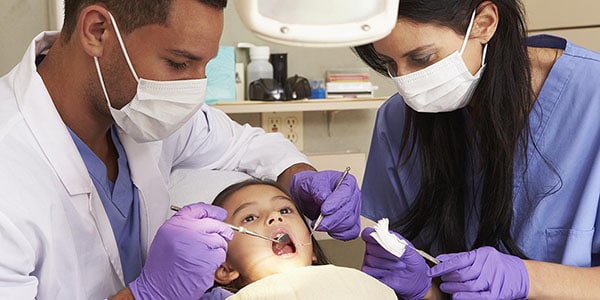
Depending on what state laws are in your state of practice there are two routes to become a dental assistant, either an Associate degree in dental assisting from an accredited program or on the job training with no formal education required. Dental Assistants help dentists by assuring the patient is comfortable, hand dental tools to the dentist, process x-rays and provide education in proper dental care. Dental Assistants can earn an average of $37,390.
Pharmacist

The typical route to becoming a Pharmacist it to earn a Bachelor’s degree then attend an accredited pharmacy school for another 3 or 4 years depending on the program. A few pharmacy schools offer a six-year program for high school graduates. Pharmacists are responsible for filling medical prescriptions per physician orders, educate patients on how and when to take a prescribed medicine and inform them about potential side effects they may experience from taking the medicine. Pharmacists are employed in hospitals, clinics, pharmacy or drug stores. The median salary for Pharmacists is $120,950 annually.
Medical Secretaries

Medical Secretaries can also be the office manager and perform a variety of administrative and clerical duties in an effort to support the professionals that work in health-related fields. They perform tasks such as answering phone calls, handling and preparing correspondence, keeping accurate and up-to-date records, making appointments, transcribing dictation, and completing insurance and other medical forms. Perhaps the main responsibility of a medical secretary is to make sure that the office runs smoothly.
Medical Records and Health Information Technician

The medical record is the most important document utilized in a healthcare environment. It is the comprehensive treatment and billing history of each patient treated by the healthcare facility. The medical billing and coders is responsible for organizing comprehensively and accurately the medical record of each patient. They ensure that all the necessary forms are present, properly identified, signed and filed. Health information technicians are able to translate complex data into understandable and simplified information for the general public.
Emergency Medical Technician

Emergency medical technicians and paramedics are the first responders to pre-hospital emergency care. They respond quickly and efficiently to critically ill or injured patients using specially equipped vehicles. There are two distinct specializations for emergency medical technicians. They are EMT-Basic and EMT Paramedic. Each specialization requires additional training. Most of this training can be obtained from local colleges and Associate degree offering schools.
Radiological Technologists
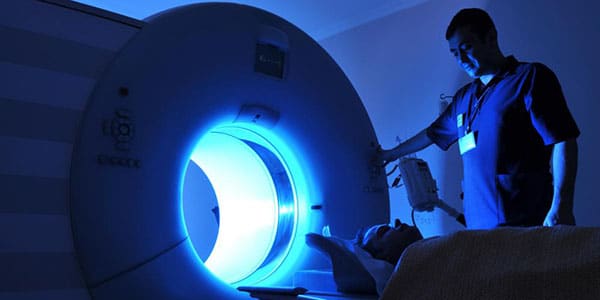
Radiological technologists use x-ray equipment for the diagnosis and treatment of diseases or injuries. They use this equipment to produce images of internal body organs and bones. They are responsible for evaluating the patient’s condition, explaining the x-ray procedures, and adjusting the radiographic equipment to give the most comprehensive view of the area to be x-rayed.
Pharmacy Technicians

Pharmacy technicians assist licensed pharmacists by performing duties that do not require the professional skills and judgments of a board-certified pharmacist. These duties include preparing prescriptions, ordering supplies maintaining patient records and billing and maintaining inventory.
Medical Laboratory Technicians

Laboratory tests have become increasingly important in the detection, diagnosis, and treatment of many illnesses and diseases. Medical laboratory technicians, also called clinical laboratory technicians, perform routine laboratory procedures on blood, tissue, and other bodily fluids using instruments such as microscopes, chemicals, computers, and complex laboratory equipment. Medical assistants handle these tests and prepare them for physicians to review the results.
Physical Therapist

Physical therapists help patients recover from illnesses and injuries. After evaluating the physicians’ referral and the patients’ medical records, they plan, administer and conduct physical therapy treatment for patients in order to restore muscle function, relieve pain, and prevent disability following disease, injury, or loss of body parts. Education required for this career is a bachelors degree in biology or life science and then another 2 years in Physical Therapy school and passing the licensure test.
Counselors

A career in counseling has become high in demand whether it is counseling individuals, couples, families etc.. There are counselors that offer therapeutic approaches in areas such as marital problems, substance abuse, suicidal feelings, stress management, and self-esteem issues. Counselors may specialize in several different areas including mental health, school and career, substance abuse, employment/vocational, rehabilitation, marriage and family, and genetic counseling.
Personal and Home Care Aides

Home health aides provide personal and homemaking services to elderly, convalescent, and disabled persons. They usually perform their services in the patient’s home. Some duties that are performed by home health aides include checking pulse and respiration rates, helping with prescribed exercises, changing surgical dressings, providing emotional and psychological support, and giving prescribed medications.
Surgical Technologist
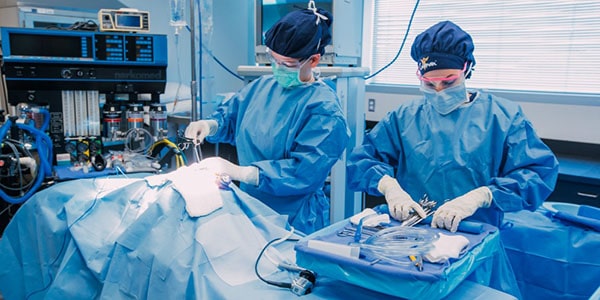
Surgical technologists are a part of the surgical team composed of surgeons, anesthesiologists, registered nurses and other surgical personnel. They help the surgeon put on gloves and gowns; place instruments, supplies, and equipment on sterile tables and stands; and pass instruments and supplies to the surgeon.
Respiratory Therapists

Respiratory Therapists (RT) work with patients having difficulty breathing, as a result of injury, asthma, lung disease or from heart attacks. Approximately 4 out of 5 Respiratory Therapists work in hospitals with others working in healthcare facilities, physician offices or home health agencies. The average salary for RT is $56,900 annually.
Physical Therapist Aides and Assistants
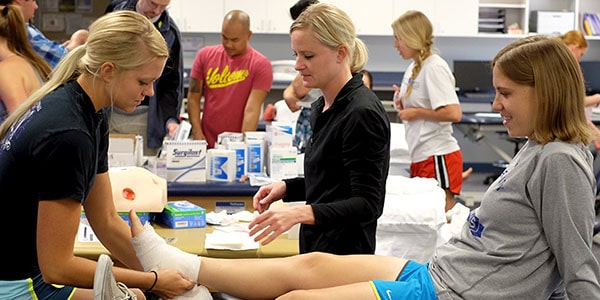
Physical therapy assistants are skilled personnel who work directly under the supervision of a physical therapist and help administer tests and treatment programs. Some of their duties include training patients in exercise and activities of daily living, using special equipment, and evaluating the patient’s progress. They also perform treatment procedures in accordance with the planned programs, assist the physical therapist in carrying out more complex procedures, and observe and report patient behavior to their supervisor.
Dental Hygienists

Dental Hygienists are not the same as Dental Assistants. Dental Hygienists need to attend Dental Hygienist school and become licensed and certified. They are responsible for cleaning patients’ teeth by removing tartar, stains, and plaque from teeth as well as accessing patients’ oral health and providing education on proper dental care. Hygienists also take and develop dental x-rays and apply sealants and fluorides for dental protection.
This profession earns a median salary of $72,520 per year.
Occupational Therapist

Occupational Therapists are like a rehab therapist that helps patients relearn everyday tasks and activities following an accident, stroke, surgery, or other illness that limited their ability to perform these tasks. Occupational Therapists develop treatment plans to affect a patient’s abilities to conduct daily activities and recover their abilities necessary for daily living or work. Masters degrees are required for this profession which can lead to an average salary of $79,010 annually.
Healthcare Educators

The need to educate those entering the healthcare career force is part of the booming healthcare industry. Health educators are an integral part of community health education programs. They provide information to individuals and communities in an effort to promote, maintain, and improve healthy lifestyles. Some of the issues that are of importance include substance abuse, safety, HIV/STDs, nutrition, high blood pressure, smoking, pregnancy, and diabetes. Health educators are also responsible for collecting and analyzing data for the purpose of researching, designing, and presenting preventative health care programs.
Clinical Trial Nurses

Nurses wanting to be employed as a Clinical Trial Nurse will need to have a minimum of a Bachelor’s degree and have worked in oncology long enough to obtain certification. More clinical trials are added yearly to better test and determine the safety and efficacy of new drugs of chemotherapy or other treatments. These trials are meticulously monitored and must meet specific requirements by the National Institute of Health, pharmaceutical companies, and healthcare clinics. The average salary for this career is $93,000 annually.
Nursing Educators

With the healthcare industry growing at such a rapid rate, it is not surprising the Nursing Educators would also be in high demand. With so many more entering this field there is also a greater need to have sufficient educators to prepare and teach students. the average salary for educators ranges from $73,000 to $84,000 annually. Nurses who obtain a Master or Doctoral degree are highly sought after as teachers. The American Association of Colleges and Nursing (CCNE) and The Accreditation Commission For Education in Nursing (ACEN) accredit online nursing programs by assessing and identifying effective educational practices.
Audiologist

Audiologists work within the specialization of hearing, particularly dealing with patients who have hearing loss, balance or related ear problems. They are responsible for examining, diagnosing, developing and administering treatment. They also fit and dispense hearing aids. Audiologists are required to have a Doctoral degree in audiology, be licensed and certified in all states. The annual salary is $74,000 with an estimated growth of 21% in the next ten years.
Speech – Language Pathologists

Professionals in the Speech-Language Pathologist career path can work in a variety of settings including hospitals, outpatient clinics, homes or schools. They can work with patients that have suffered strokes, brain injury, developmental issues, physical malformations and/or emotional problems, Speech-Language Pathologists assist patients in developing speech-language skills. A Masters degree is necessary to work in these capacities. An average income for this profession is $72,000 with a job growth projected to be 21% in the next ten years.
Occupational Health and Safety Specialists

Along with the increased need of traditional healthcare employees comes the need to guarantee safety and protection for patients and employees alike. This is where the profession of Occupational Health and Safety Specialists come in, they are responsible for assuring that employees, patients, and others are protected from hazardous materials, toxins, and other hazards. This career typically requires a Bachelor’s degree in occupational health and safety or in a related scientific or technical field, such as engineering, biology, or chemistry. The average salary for this career is $70,000 annually.
Genetic Counselors

A somewhat newer profession, Genetic Counselors are prepared with a minimum of a masters degree assess individual or family risk for a variety of inherited conditions, such as genetic disorders and birth defects. They also provide education, information, and support to healthcare providers, or to individuals and families concerned with the risk of inherited conditions. They can be employed in hospitals, by private physicians, or even in colleges and universities. The average salary for this career is $68,000 annually.
Healthcare Compliance Officers

Just as the need for educators and safety professionals in the healthcare field has increased so has the need for a system to guarantee state and federal regulations are being met, hence the career of Healthcare Compliance Officers. There is no higher regulated profession than that of healthcare. Compliance Officers assure requirements are upheld to meet Occupational Safety and Health Administration (OSHA), the Affordable Care Act (ACA) and Health Insurance Portability and Privacy Act (HIPPA). A minimum of a Bachelors degree is typically required and, often, Healthcare Compliance Officers may hold Masters degrees in nursing or medical degrees. AN average salary for this position is $65,000 annually.
Healthcare Web Developer

Perhaps not necessarily a healthcare career the role that a specialized web developer in the highly specialized field of healthcare is growing. An online presence has become essential for this generation. Websites now provide education, physician and medical services provided and general information on patient care. More healthcare professionals are using their websites to do online hospital admission, pay bills, ask medical questions and connect with medical professionals. A minimum of an Associates Degree is typically required with an emphasis in graphics design and programming.
Cardiovascular Technicians
Cardiovascular Technicians has been a growing career choice for years and continues to be so. Technicians are a key component in the healthcare team as they prepare patients for procedures and assure diagnostic equipment is properly maintained and calibrated. This career is attainable with an Associates Degree, students will study anatomy, medical terminology, applied sciences; and, courses in invasive or noninvasive cardiovascular or vascular technology procedures. Students can expect to complete a clinical rotation working with physicians, diagnostic clinics or laboratory. The average salary for this career is $63,000 annually.
Medical Sonographers
Medical Sonographers can be employed in hospitals, physician offices, and outpatient clinics. This position requires an Associates Degree or Bachelor Degree with studies in anatomy, medical terminology, and applied sciences. Most studies will include a clinical experience and all sonographers must be licensed and certified. The average salary for this position is $63,000 annually.
Dieticians and Nutritionists
To work in this field, registered dieticians need to obtain a bachelor’s degree in nutrition science. They typically work in hospitals, clinics, and outpatient centers. Their responsibilities include being an expert in food and nutrition, assess patients’ individual needs and counsels regarding appropriate diets and nutritional habits to promote healing and patients overall health. The average salary for dietitians and nutritionists is $57,000 annually.
MRI Technologists
As with other technician positions, an MRI technician is responsible for assuring imaging equipment is well maintained, following physician orders on which images are required, explain procedures and answer patient questions, properly position the patient for imaging and operate the computerized equipment to take images. MRI technicians usually begin as radiological technicians before specializing as an MRI technician. The average salary is $58,000 annually.
Occupational Therapy Assistants
Occupational Therapy Assistants work closely with the Occupational Therapist in teaching patients to use special equipment or devices, perform therapeutic exercises to improve or develop skills necessary in daily life. The minimum required education is an associate degree, the average income earned in this position is $53,000 annually.
Medical and Clinical Laboratory Technicians
Medical and Clinical Laboratory Technicians will need a minimum of a bachelor’s degree in medical laboratory technology. This will include courses in chemistry, biology, microbiology, math, and statistics. many employers will require a certification for positions in this field. The average income in this field in $50,000 annually.
Medical Equipment Repairer
Medical Equipment Repair Personnel are responsible for installation, maintenance, and repair of medical equipment, Medical Equipment Repairers require an Associates degree in biomedical technology or engineering. Some companies will require certification through the Association for the Advancement of Medical Instrumentation (AAMI) which offers certification in three specialty areas—Certified Biomedical Equipment Technician (CBET), Certified Radiology Equipment Specialists (CRES), and Certified Laboratory Equipment Specialist (CLES).
Clinical Social Workers
Clinical Social Workers can work in a variety of settings with a variety of patients depending on their specialization. They can work with patients and clients in crisis, illness or those experiencing mental health issues across the lifespan. They are required to have at least a masters degree and 2 years of clinical experience in a supervised clinical setting. They can earn up to $46,000 annually.
Surgical Technologists
To be employed as a surgical technologist one needs an associate degree or certification. They’re responsible for preparation of patients, the arrangement of the operating room, sterilization of instruments, assistance to surgeons by passing required instruments and maintenance of an accurate count of instruments and supplies (such as sponges and instruments). This position is also referred to as Operating Room Technologists, they typically earn $44,000 annually.
Physicians Assistants
One of the top-ranked jobs in the country is this position. To become a PA, one must hold either bachelors or masters degrees with the master’s degree considered to be the terminal degree. Most programs may be completed within two years, although some may require longer. Programs for MSPA (Master of Science Physician Assistant) are accredited by the Accreditation Review Commission on Education for the Physician Assistant (ARC-PA). They are licensed to examine, diagnose and treat patients, order tests such as X-rays and blood work and prescribe medications. The annual salary for a PA starts at $96,000.
Addiction and Rehabilitation Counselors
Substance abuse and behavioral disorder counselors advise people who suffer from alcoholism, drug addiction, eating disorders, or other behavioral problems. These counselors provide therapy and treatment and support for patients to recover from their addiction. Most of these counselors have a minimum education of a Bachelors degree but Masters degrees are available. The average income for this position is $37,000 annually.
Paramedics
While an advanced degree is not required for this career, students must complete EMT and Advanced EMT levels of instruction, along with courses in advanced medical skills that are offered in most community colleges $37,000.
Computer and Support Specialists
As most of the record keeping for patients has gone online the need for computer and support specialists has increased. Computer Support Specialists provide onsite software support for clinicians and employees. Most employees in this field hold a bachelor’s degree though there are some jobs that exist for those holding Associates degrees. Most frequently, Computer Support Specialists test and evaluate existing network systems, perform regular maintenance and install computer systems to ensure that networks operate correctly and troubleshoot issues for employees.
Orthotists and Prosthetists
Orthotists and prosthetists are responsible for designing and creating medical supportive devices for patients who have lost limbs or have mobility issues. These devices include artificial limbs (arms, hands, legs, and feet), braces, and other medical or surgical devices. This career requires a Master’s degree in orthotics and prosthetics. Coursework includes studies in upper and lower extremity orthotics and prosthetics, spinal orthotics, and plastics and other materials used for fabrication. These graduate programs take two years on average. The average salary for this position is $66,000 annually.
Chiropractors
Requiring a minimum of three years undergraduate study and a four-year program in Doctor of Chiropractic (D.C.) degree and a state license, Chiropractors analyze patients’ posture, spine, and reflexes and conduct tests to evaluate a patient’s posture. Chiropractors also employ neuromuscular therapy to assist in the alignment of the spine and other joints. The average salary for chiropractors is $67,000 annually.
Advance Practice Nurse
These specialized nurses provide primary and specialty care. An undergraduate degree in nursing is required before entry into a master’s program in APRN. Areas of emphasis in master’s programs include Nurse Anesthesia, Nurse Midwives, and Nurse Practitioner. The average salary for this position is $103,000 annually.


